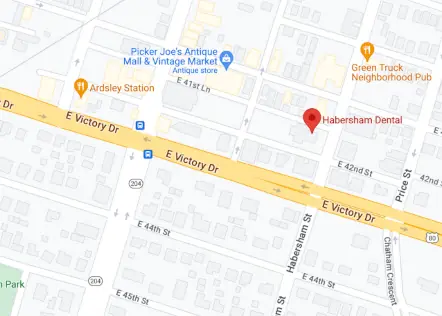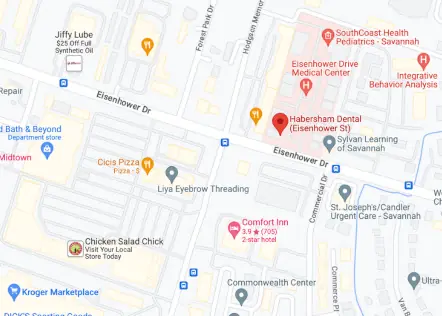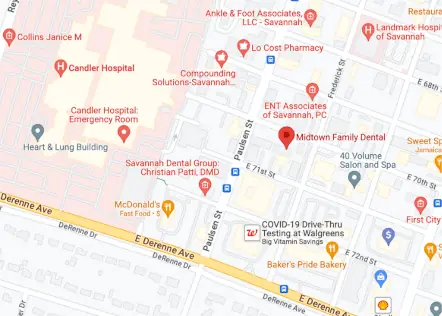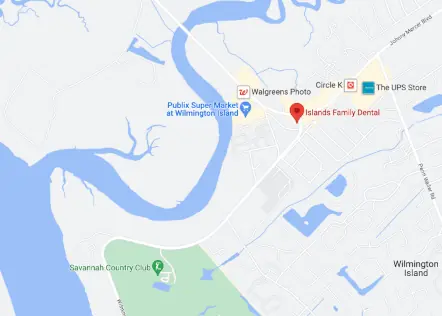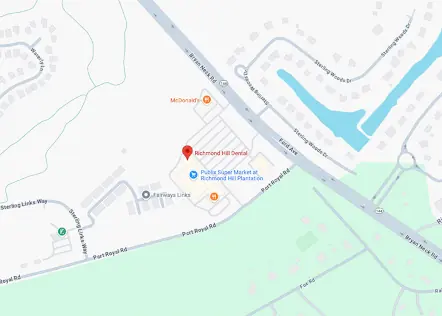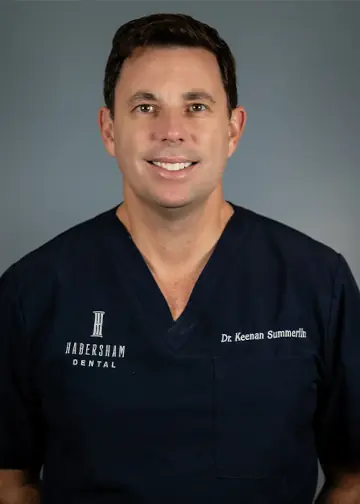Regular Dental Checkups in Savannah, GA
Regular dental checkups are an essential part of maintaining a healthy smile. It’s a critical part of your oral health and something we recommend to all of our patrons. Dental checkups should be completed every six months to maintain proper, optimal health.
Keep your teeth and oral health in great shape with regular dental checkups near Savannah, GA
As leading dental hygienists, we believe in the power of teeth cleanings, flossing, sealants, and fluoride to prevent dental disease. Our focus is on thorough dental care exams to check your teeth, gums, and overall health. At Habersham Dental, we are equally concerned about your smile as we are about your well-being.
You can expect a typical new patient hygiene and cleaning appointment to go as follows:
-
- Our front staff will welcome you with typical information gathering and answering any dental care questions you may have.
- Next, your dental hygienist will greet you in the waiting room.
- If dental X-rays or photos are required, they will be taken to understand the overall health of your mouth and accurately diagnose any dental issue.
- Then your dental hygienist will perform a teeth cleaning, polish, floss, and fluoride.
- Next, we will take a periodontal chart to write and record gingival and overall oral conditions relating to oral and periodontal (gum) health.
- Meet the doctor for an exam and discuss any areas of concern you may have or we may want to address.
- If any areas of concern are found, we consult with your insurance company to provide an estimate of costs. If you do not have dental insurance at the time, you can use our third-party payment provider CareCredit to pay for the care you need.
- During your appointment with the doctor, please feel free to openly inquire about any dental concerns you may have.
- Schedule any needed treatment or simply your next 6-month cleaning appointment.
Expect this first appointment to take between 1 hour and 1.5 hours, so that we don’t rush you through or provide too much information too quickly for you.
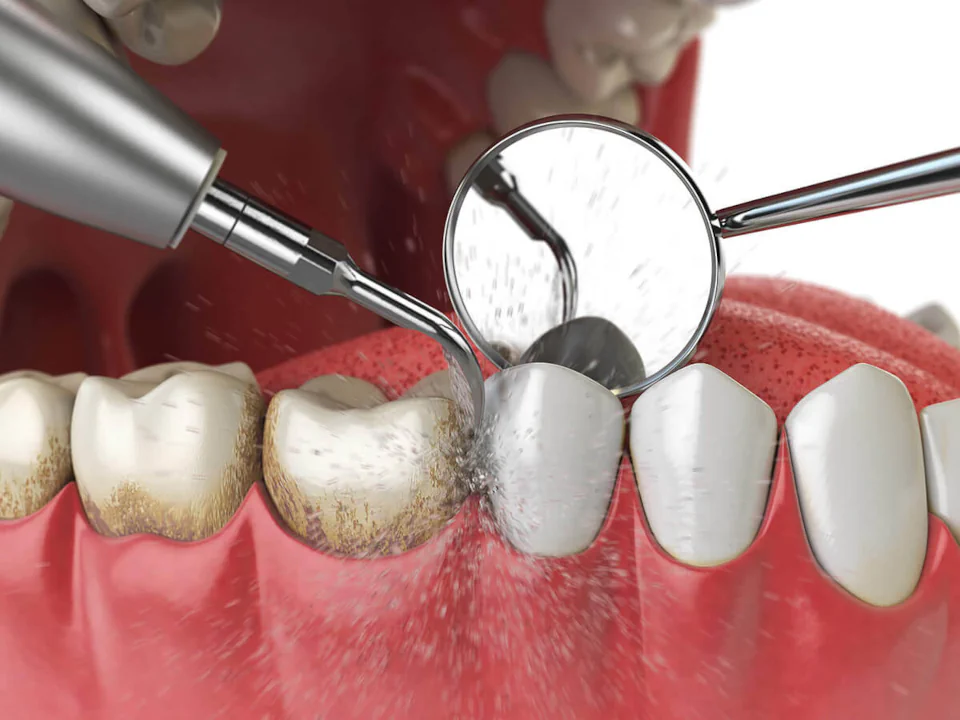
-
Why are dental checkups important?
Many oral health concerns can only be detected through a thorough examination by a trained dentist. Dental checkups provide oral cancer screenings, digital X-rays to check for hidden issues, and professional cleanings to eliminate plaque, bacteria, and other buildups that daily brushing and flossing won’t effectively eliminate.
Gum disease is the leading cause of tooth loss, so early intervention is essential. Once gum disease has taken its toll on the tooth and supporting bone, it cannot be restored, but only managed or replaced. The dental hygienist will use a small ruler to gently measure the gum “pocket” around each of your teeth, making note of areas that you can’t clean with a toothbrush or floss. X-rays are used in conjunction with these measurements, to identify areas of bone recession.
-
How often should you get dental checkups?
Ideally, dental checkups are performed every six months. On your first visit to the dentist, they will ask for a full health history to gain an understanding of your past and current health. From there, regular dental checkups will be used to determine any change in your oral health and keep your teeth and mouth in good shape or maintained appropriately.
The American Dental Association, and most dentists, recommend six months because the maintenance and cleaning provided at each visit is the best way to ensure you maintain healthy teeth and gums.
As long as your mouth is free of gum disease and heavy buildup, six months is about the average length of time for tartar and stain to accumulate to the point of needing another teeth cleaning. For individuals with a history of periodontitis, those maintenance visits may need to be as frequently as every 3-4 months.
-
What are the signs of oral cancer?
Mouth cancer can occur anywhere in the mouth, including the lips, tongue, and throat, as well as the salivary glands, pharynx, larynx, and sinuses. Because early detection is critical to overcoming the disease, make an appointment with your doctor if any of the following occur:
- Sore, swelling, lumps or thick patches in or around your mouth
- The feeling of a lump or object in your throat
- Numbness or pain anywhere in your mouth
- Loose teeth with no dental cause
- Lingering sore throat or hoarseness
- Areas of red or white lesions in your mouth or lips
- Trouble moving your jaw, swallowing or speaking
- Pain in your ear without loss of hearing
Over half of those in the U.S. survive oral cancer after five years, according to the National Institute of Dental Craniofacial Research, but it is critical it is caught early.
-
Why are brushing and flossing important?
We all know brushing and flossing make our mouth feel great. But, brushing and flossing do more than freshen breath – they physically disrupt the complex network of bacteria called a biofilm. It’s important to disrupt and remove the sticky film so diseases like cavities and gum disease are less likely to happen. There are a lot of products on the market that claim they are the best. Make sure to talk about the options with your hygienist to get the best recommendation.
And as you know, it is important to brush twice a day for at least two minutes, and floss once. If you have a hard time remembering to floss, connect it with a daily activity you always do. You can floss in the shower or while driving to work!
-
What are other preventative dental care strategies?
Besides having your teeth cleaned and stain polished off, our comfortable dental cleaning also provides other preventative services, such as:
Dental Sealants — Deep grooves and pits in your back teeth are at a higher risk of cavities. Placing a protective sealant over these surfaces makes them easier to clean and lowers your chances of developing tooth decay.
Fluoride Treatment — Fluoride strengthens tooth enamel, fights sensitivity, and reverses the earliest stage of tooth decay (demineralization). Dental insurance typically covers fluoride treatments for children, but our adult patients can take advantage of the service for only $29.
Oral Cancer Screenings — This deadly disease is linked to viruses like HPV, sun exposure, and tobacco/alcohol use. Early screening could save your life. We complete a cancer exam as part of every checkup appointment.
Diagnostic X-rays — Intermittent X-rays allow us to identify new areas of decay or bone loss around your teeth, so that we can treat them in the least invasive manner before they become worse.
More questions?
If you have any questions or would like to schedule your dental checkup, contact our office and we'll be happy to help.

